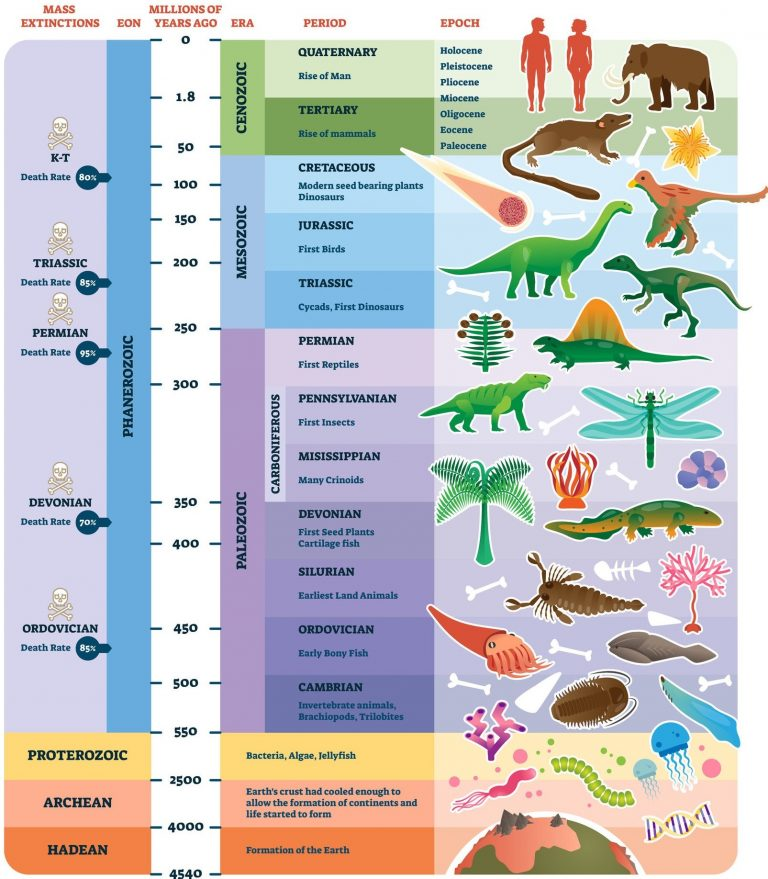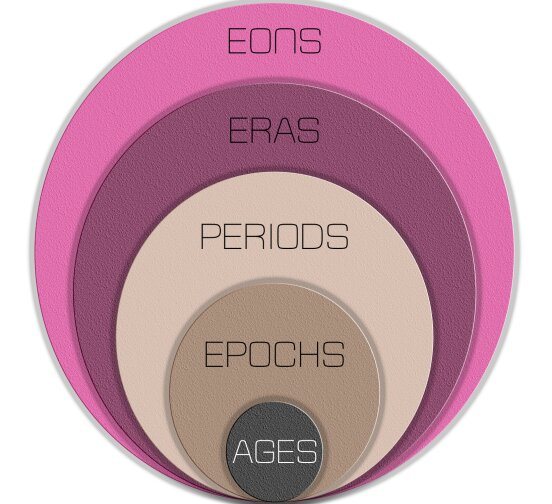Geography
Anthropocene Epoch
- 15 Jul 2023
- 5 min read
For Prelims: Anthropocene Epoch, Anthropocene Working Group, GSSP, Holocene Era, Geological Timescale.
For Mains: Anthropocene Epoch.
Why in News?
Recently, the Anthropocene Working Group (AWG) has proposed that the Anthropocene, a new geological epoch characterized by significant human impact on Earth's systems, began in 1950.
- The AWG is an interdisciplinary research group dedicated to the investigation of the Anthropocene.
- If the proposal wins the necessary majority support, the International Union of Geological Sciences could officially ratify the new Global boundary Stratotype Section and Point (GSSP) in August 2024.
Note: The GSSP is a designated geological reference point that marks the boundary between two geological time units. It serves as an internationally agreed-upon standard for defining and correlating different periods in Earth's history. GSSPs are crucial for establishing the boundaries of epochs, ages, and other divisions within the geologic time scale.
What is the Background?
- The starting date of Anthropocene is supported by evidence from Crawford Lake near Toronto, Canada, which contains traces of the radioactive element plutonium.
- Around the year 1950, there was a notable increase in the concentration of plutonium particles. This significant change serves as a clear indication of human impact and, consequently, provides evidence of the Anthropocene era.
- The research findings of Crawford Lake provided strong evidence for the AWG’s hypothesis that the unprecedented increase in industrial and socioeconomic activity of the Great Acceleration around the mid-twentieth century has caused alterations to the Earth System on a scale that terminated ~11,700 years of largely stable Holocene conditions and marks the beginning of a new Earth epoch.
What is the Anthropocene?
- The Anthropocene epoch as a term was first coined by Nobel Prize-winning chemist Paul Crutzen and biology professor Eugene Stoermer in 2000 to denote the present geological time interval, in which the Earth’s ecosystem has gone through radical changes due to human impact, especially since the onset of the Industrial Revolution.
- There are numerous phenomena associated with this epoch, such as Global Warming, Sea-Level Rise, Ocean Acidification, mass-scale soil erosion, the advent of deadly Heat Waves, deterioration of the biosphere and other detrimental changes in the environment.
What is the Holocene Epoch?
- The Holocene is the current geological epoch, which began approximately 11,700 years ago at the end of the last major ice age.
- It is characterized by a relatively stable and warm climate, as well as the development of human civilization.
- The Holocene follows the Pleistocene epoch and is part of the larger Quaternary period.
- During the Holocene, Earth's climate experienced fluctuations, but overall, it has been a period of relatively milder and more stable conditions compared to the preceding ice age. The retreat of glaciers and the rise in global temperatures allowed for the expansion of forests, grasslands, and diverse ecosystems.
What is the Geological Time Scale?
- Geologists divide the 4.6-billion-year existence of Earth into slices of time such as Eon, Era, System/Period, Series/Epoch, and Stage/Age.
- Eons are divided into Eras, Eras into Periods, Periods into Epochs, and Epochs into Ages.
- Each slice corresponds to significant happenings - such as the break-up of continents, dramatic shifts in climate, and even the emergence of particular types of animals and plant life.

What is the International Union of Geological Science?
- The International Union of Geological Sciences (IUGS) is a global non-governmental organization that aims to promote and advance the Earth sciences. It serves as the international coordinating body for professional geological research and education.
- The IUGS was founded in 1961 and is a member of the International Science Council (ISC).





